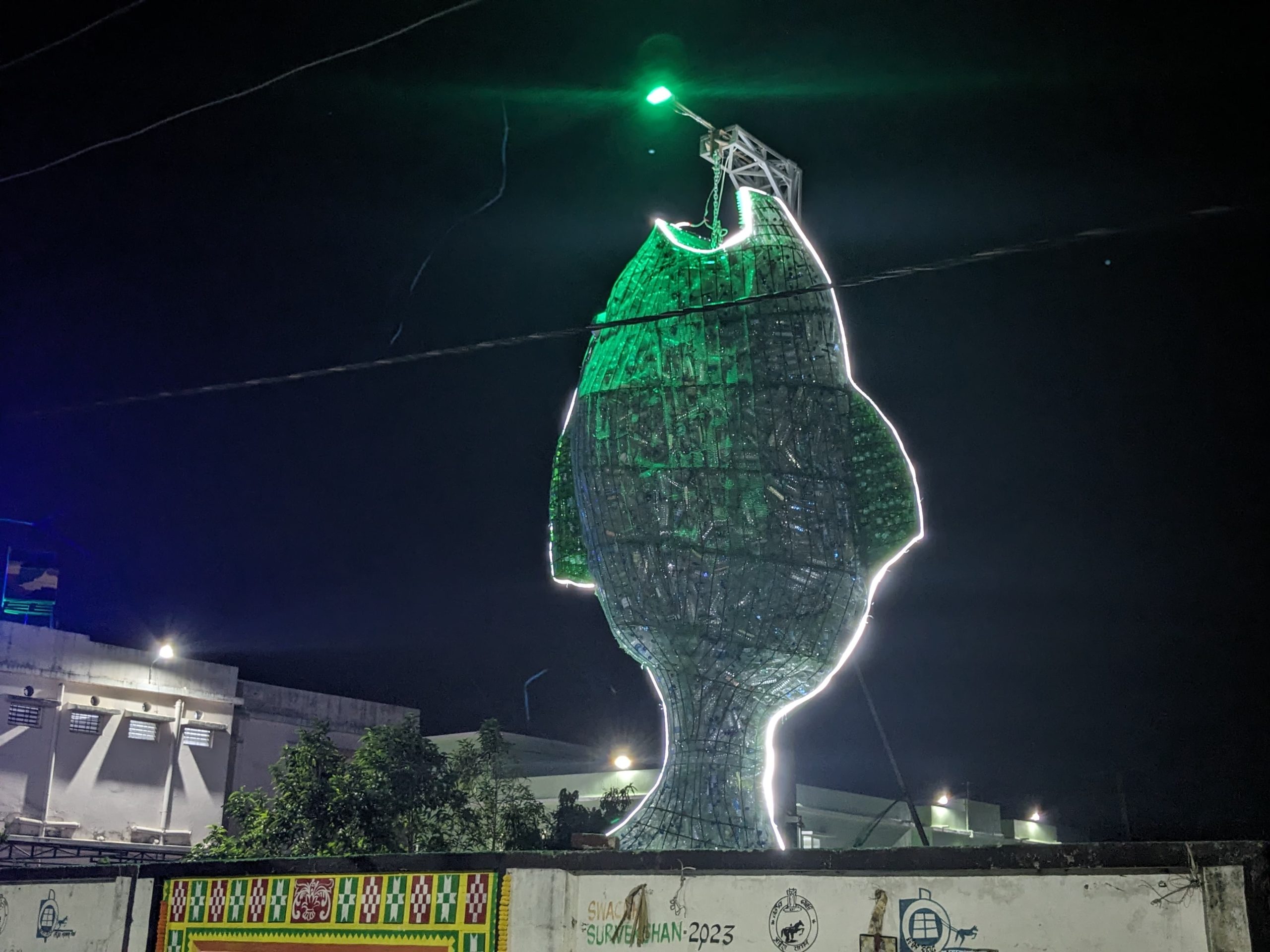The students and faculty members of the Industrial Training Institute (ITI) in Berhampur, Odisha, have once again showcased their ingenuity and commitment to environmental sustainability by creating a magnificent sculpture of a fish using over 20,000 discarded plastic bottles. The colossal 30-foot-high sculpture, inaugurated by the Chief Executive Officer (CEO) of TPSODL, Amit Kumar Garg, stands as a testament to the institute’s dedication to innovative waste management practices. Principal Rajat Kumar Panigrahi explained that the construction of the fish-shaped sculpture involved meticulously arranging plastic water bottles collected from various parts of the city within a framework made of insulated iron net and scrap iron rods. The structure, weighing over 1500 kg, serves as a striking reminder of the detrimental effects of plastic pollution on aquatic ecosystems.
The project, initiated in February, exemplifies collaborative efforts, with students from diverse trades such as fitter, mechanic, agriculture, painter, and electrician, working alongside their instructors. The ITI’s commitment to the “waste to wealth” concept is evident through its unique scrap park, featuring an array of sculptures crafted from discarded materials, setting national and international records in the process. Principal Panigrahi emphasized the significance of addressing plastic pollution, which poses a significant threat to marine life and disrupts delicate ocean ecosystems. By repurposing plastic bottles into a captivating art installation, the ITI aims to raise awareness about this pressing environmental issue and promote responsible waste management practices.
This remarkable initiative follows the institute’s previous success in unveiling a 23-foot elephant sculpture crafted entirely from 30,000 used plastic bottles on Gandhi Jayanti last year, further solidifying its commitment to environmental conservation and creative recycling endeavors.
The students and faculty members of the Industrial Training Institute (ITI) in Berhampur, Odisha, have once again showcased their ingenuity and commitment to environmental sustainability by creating a magnificent sculpture of a fish using over 20,000 discarded plastic bottles. The colossal 30-foot-high sculpture, inaugurated by the Chief Executive Officer (CEO) of TPSODL, Amit Kumar Garg, stands as a testament to the institute’s dedication to innovative waste management practices. Principal Rajat Kumar Panigrahi explained that the construction of the fish-shaped sculpture involved meticulously arranging plastic water bottles collected from various parts of the city within a framework made of insulated iron net and scrap iron rods. The structure, weighing over 1500 kg, serves as a striking reminder of the detrimental effects of plastic pollution on aquatic ecosystems.
The project, initiated in February, exemplifies collaborative efforts, with students from diverse trades such as fitter, mechanic, agriculture, painter, and electrician, working alongside their instructors. The ITI’s commitment to the “waste to wealth” concept is evident through its unique scrap park, featuring an array of sculptures crafted from discarded materials, setting national and international records in the process. Principal Panigrahi emphasized the significance of addressing plastic pollution, which poses a significant threat to marine life and disrupts delicate ocean ecosystems. By repurposing plastic bottles into a captivating art installation, the ITI aims to raise awareness about this pressing environmental issue and promote responsible waste management practices.
This remarkable initiative follows the institute’s previous success in unveiling a 23-foot elephant sculpture crafted entirely from 30,000 used plastic bottles on Gandhi Jayanti last year, further solidifying its commitment to environmental conservation and creative recycling endeavors.





